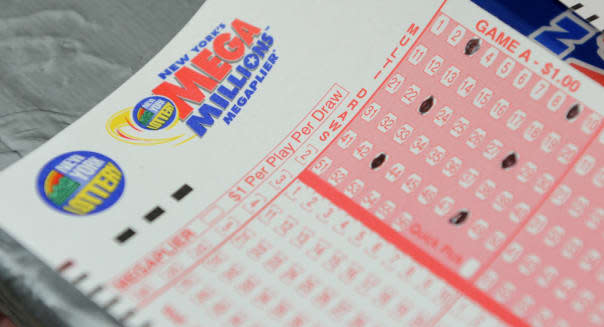Mega Millions Hits $400 Million: Read This Before You Buy a Ticket

$400 million. Four. Hundred. Million. Dollars.
What more do we need to say? That's an absolute boatload of cash, and someone could win it Tuesday in the Mega Millions lottery. Maybe more. Maybe you.
But if it seems to you like there have been more super-gigantic prizes at stake recently, well you're right. And after we explain why, we'll have a lottery-related money tip or several for you.
Last year, the folks who run the lottery noticed something. When the jackpots get really, really huge, it attracts some nice press coverage, and even the occasional players head out to buy tickets. So they decided to goose the size of their jackpots -- by significantly lowering your chances of winning them. In October, Mega Millions made changes to the number of balls that cut the odds of landing the big prize from about 1 in 176 million (similar to rival lottery Powerball) to about 1 in 259 million.
You may have heard this before. Every time a jackpot heads into the neighborhood of half a billion, we update this article, and send it back out into the world. But there's a darn good reason.
DailyFinance exists to help you, our readers, do better with your money, and lottery tickets are a waste of it. The odds are so infinitesimally low that even at $400 million, it's not worth playing. And many of the "lucky" winners aren't so lucky: Plenty of them eventually end up broke -- worse off than they were before their windfall.
It wouldn't happen like that for you, of course. But you've come this far, so please: Before you go out and splurge on a few tickets -- or a few dozen -- glance through this quick rundown on lotteries and lottery winners. It may help you feel a lot better about not giving in to temptation.
• It's Not the Jackpot You Think It Is: If you win the prize, you won't actually see the amount you expect. First, Uncle Sam levies heavy taxes on income that high, so a handsome chunk of your winnings will go to the government. Ironically, a majority of people -- even among the ones who say that the rich should be taxed more -- feel that those lucky souls who win the lottery shouldn't have to pay as much in taxes as people who make their money in more conventional ways. Second, most winners chose the cash prize option instead of the annuity. If a single winner took the lump sum option Tuesday, he or she would only cash a $224 million check -- before taxes.
• It's a Bad Deal for the Biggest Players: The thought of winning millions is attractive to everyone, but especially attractive to lower classes, who spend up to 9 percent of their income on lottery tickets. With personal debt and unemployment rates at painful levels, who can blame people for being hopeful? But the statistics show that the lottery is a sucker bet. Saddest of all, though the odds are vastly better that you'll get struck by lighting or die from flesh-eating bacteria than win a big lottery payout, 21 percent of American adults agreed with this entirely false statement: "Winning the lottery represents the most practical way [for me] to accumulate several hundred thousand dollars."
• Really Want to Win? Here's an Almost Guaranteed Way to a $50,000 Prize: A Powerball ticket costs $2. Mega Millions still costs a buck. Let's say you're a regular player, who buys five Powerball tickets or 10 Mega Millions tickets a week. That's $520 a year. Over the course of 30 years, that's $15,600. Our friends over at InvestingAnswers.com did the math on what you'd end up with if you invested that money simply. Result: In retirement, when you need it most, not having bought those lottery tickets will likely "win" you more than $50,000! Congratulations!
• A Useful Analogy: Speaking of retirement, winning the lottery is a lot like retiring: Suddenly, you have all this money and you don't have to work anymore. It's easy to make some impulsive splurges, but remember, the longer your wealth lasts, the longer you benefit from it. And be warned: Major windfalls can attract a large number of new "best friends."
• You Won! Then You Lost!: Most of us believe that if we won the lottery, we'd be set for life. But the sudden gains of a lottery windfall can be fleeting. Consider the sad case of Sharon Tirabassi of Hamilton, Ontario, who won $10 million and had almost none of it left less than a decade later.
Check Out These Lottery-Related Articles from DailyFinance
Lottery Winners Share Lessons, Risks of a Giant Powerball Prize
Why Poor People spend 9 Percent of Their Incomes on Lottery Tickets
%Gallery-151835%

